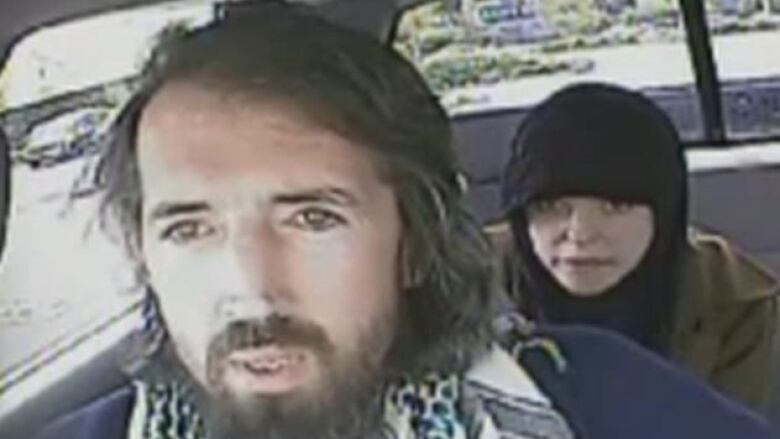Liberals must change Canadian anti-terror law, rights advocate says
Entrapment was never a successful defence in such cases before recent B.C. ruling, Steven Zhou writes

The B.C. Supreme Court's recent decision to toss out the terrorism convictions of John Nuttall and Amanda Korody marked the first time police entrapment became an effective defence in Canada's post-Sept. 11 climate.
Justice Catherine Bruce was unequivocal: "The spectre of the defendants serving a life sentence for a crime that the police manufactured by exploiting their vulnerabilities, by instilling fear that they would be killed if they backed out, and by quashing all doubts they had in the religious justifications for the crime, is offensive to our concept of fundamental justice."
This isn't the kind of language that Canadians, or Americans for that matter, are used to hearing from their courts when it comes to terrorism trials. Perhaps it has to do with the climate of the times, but entrapment was never a successful defence in such cases until this recent ruling. That the judgment came out the way it did really makes one think about other, similar cases where the entrapment possibility became a serious controversy.
This doesn't mean law enforcement has only a minor role in keeping terrorism at bay. The recent gunning down of ISIS sympathizer Aaron Driver in Strathroy, Ont., took place after the RCMP found out he had recorded a "martyrdom video" and planned to attack a city centre within 72 hours. Driver, who was arrested in Winnipeg following media interviews where he declared support for the Mideast militants fighting to establish an Islamist state, was under a peace bond that said there were "reasonable grounds to fear that he may participate, contribute directly or indirectly in the activity of a terrorist group." He was killed in a confrontation with authorities after he detonated an explosive in the back of a cab on Aug. 10.
- Aaron Driver autopsy shows ISIS sympathizer died of wound from RCMP gunshot
- TIMELINE: Aaron Driver's history of radicalization
The whole episode contrasts sharply with the Nuttall and Korody case, in which the RCMP led the two hapless individuals to a place where they wouldn't have gone if left alone. Driver had a history of suspicious behaviour that caught the attention of the FBI and didn't need police to help him along the road of radicalization. One would think that such cases make it unnecessary to create less-than-real incidents of extremist violence, which makes the B.C. case so bizarre.
The B.C. Supreme Court concluded Nuttall and Korody were really guilty of nothing but blowing a lot of hot air. Both were terribly incompetent individuals who hadn't the means or wherewithal to carry out the propagandistic and outrageous proposals they spewed. So, minus the RCMP's careful plotting and setup, all that's left, really, is speech. And speech itself, the court ruled, isn't enough to get you convicted as a terrorist.

Nuttall and Korody allegedly decided to blow up the B.C. legislature in 2013 and were convicted of three counts of terrorism last year. Had they been charged or convicted after the royal assent of Bill C-51 last summer, the B.C. Supreme Court ruling may have turned out very different and that should scare a lot of people.
The Liberal Party has formed a parliamentary committee to oversee how terrorism cases are pursued by law enforcement. It's supposed to be a significant part of their strategy to mitigate the excesses of Bill C-51, which Justin Trudeau and the Liberals promised to amend before last year's federal election. But their promises were always vague. They never specified which parts of the law they want to repeal or change and nothing of substance has really changed after several months in power. The committee they put together doesn't even answer to Parliament, but to Trudeau alone, and law enforcement and intelligence agencies are allowed to withhold any information they want from committee members.
- National security oversight committee coming by summer, says Ralph Goodale
- Trudeau tracker: Promised changes to anti-terrorism law C-51 still months away
NDP MP Randall Garrison is drafting a proposal to repeal the bill altogether, though it's doubtful whether the Canadian public would even find this desirable right now. No doubt the Liberals feel very little pressure from the Canadian public to reform Canada's anti-terror regime after major terrorist attacks in Paris, Orlando, Fla., Istanbul and Nice, France, just to name a few. Over the past year and a half, droves of people have gravitated toward the Islamic State, which has captured the "jihadi mind" more effectively than al-Qaeda.
Whether this development in global terrorism necessitates a draconian security regime here in Canada is a separate question. Legal experts such as Craig Frocese and Ken Roach have consistently argued against Bill C-51, first introduced by the Conservatives. Despite the much less hardline rhetoric brought in by Trudeau and the Liberals, Canada is still very much mired in the legacy of Stephen Harper as far as national security is concerned. This is an obvious truism that seems to be more and more hidden in plain sight in 2016.
Public support for any major reforms to Bill C-51 just doesn't seem to exist right now, despite the best efforts of large segments of civil society. Fear is the most potent emotion in politics and high-profile tragedies seem to have injected the public with lots of it.
But the B.C. ruling still throws the current state of Canada's anti-terror strategy into sharp relief. It doesn't always align with the stated purpose, or the Charter of Rights and Freedoms, for that matter entrapment isn't just some concocted fantasy made up to excuse terrorists.
Those among the public who care about their safety and the responsibility of government to balance that safety with proportional restraint in policing and surveillance should support an active review of Canada's existing anti-terror laws.
Steven Zhou is a Toronto writer who has experience in human rights advocacy. He has worked for Human Rights Watch, OXFAM Canada and other non-governmental organizations.












_(720p).jpg)


 OFFICIAL HD MUSIC VIDEO.jpg)
.jpg)



























































































